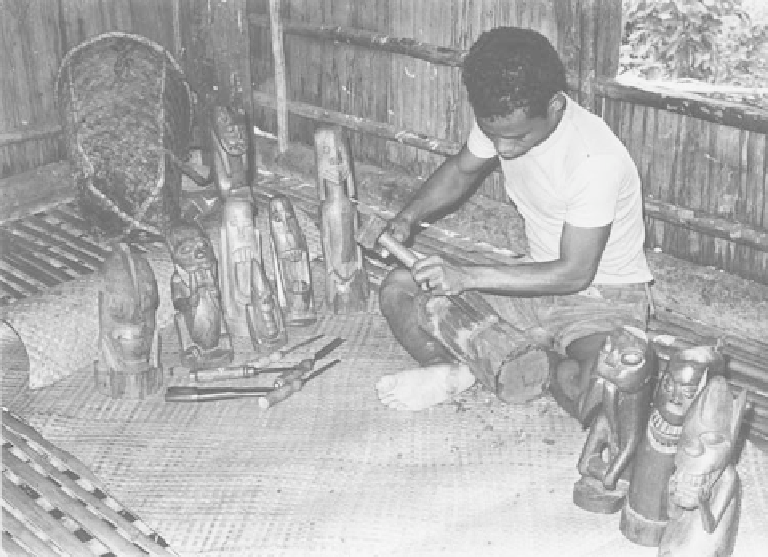Travel Reference
In-Depth Information
be it a modest wooden house furnished with straw mats and rice-
paper windows in Kyoto, a solemn British mansion on Victoria Hill, a mud hut on the banks of the Nile, a
Cape Cod bungalow, or a Rio de Janeiro apartment—being born, living, eating, drinking, resting, and dying
are the same the world over. These similarities re
ect the basic unity of people. This unity is really well
understood by people but, alas, is too often forgotten by nations and their rulers and leaders.
There are many ways in which a traveling family can meet and become acquainted with families in
other lands. One of the best known of these plans is the
Whatever happens in any home
—
programs. Arrangements
can be made by a travel agent through a local contractor, say, in Copenhagen, to provide a program of
social contacts and other activities to enrich the visitor
''
people-to-people
''
s acquaintanceship and understanding of the
Danish people. Arrangements can be made to stay in a private home or to attend a seminar or similar
program. Such opportunities can be and are operating in hundreds of places, in many parts of the
world. A greater awareness of such possibilities and more widespread use of this type of program
would increase understanding, friendship, and appreciation of other people.
A tourist standing on the balcony of a $100- to $200-per-day hotel room looking at the passersby
below obtains little real knowledge of the people in the country being visited. However, if
opportunities are readily available for social contacts with locals of that country, increased under-
standing and appreciation for the people of that area will take place.
Can tourism contribute to peace? If understanding and increased appreciation for other people
'
s
way of life, mores, culture, and language make us more a part of a world community, then the answer
must be yes. This is especially so if at least casual acquaintance can be made with residents of the host
country. Tourism provides a vehicle whereby people from one area become acquainted with people of
another. Efforts to build that acquaintance will contribute to understanding, and understanding is at
least the
first step in creating and maintaining friendly national relationships.
Countries whose leaders understand and encourage tourism are making an effort to improve the
personal relationship between their citizens and those of other countries. Although economic
considerations may be uppermost, the importance of social contacts is also recognized.
Tourism
flourishes in a climate of peace and prosperity. Political unrest, terrorism, wars,
depressions, recessions, and civil strife discourage tourism.
'
In Malaysia, visitors can observe local carvers creating works of art. Such opportunities for interaction
increase understanding and awareness.
PhotocourtesyoftheMalaysiaTourismBoard.









Search WWH ::

Custom Search